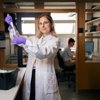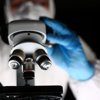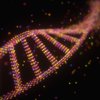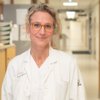Fritextsökning
Artiklar per år
Innehållstyper
-

The top five most expensive drugs in 2025
New advanced therapeutic medicines are reaching the market, but their price tags remain exceptionally high. This year’s ranking of the most expensive drugs in the US reveals a common denominator: all are gene therapies administered as one-time treatments.
-

Novo Nordisk appoints Mike Doustdar as new CEO
The Danish pharmaceutical giant Novo Nordisk has appointed Mike Doustdar as its new CEO. At the same time, the company announced it was lowering its forecasts – which caused the stock to drop sharply on Wednesday.
-

Miljonregn över två svenska biotechbolag – utvalda av EU:s innovationsråd
Pixelgen Technologies och Single Technologies, båda Stockholmsbaserade life science-företag, får finansiering från Europeiska innovationsrådet (EIC) på 12,5 miljoner euro vardera, motsvarande cirka 139 miljoner konor.
-

Venomaid's rapid test aims to find the right snake bite treatment
Every six seconds, someone on our planet suffers a snake bite, and each time, a race against the clock begins. What kind of snake was it, and which antivenom can help? Danish company Venomaid Diagnostics is working hard to develop solutions to a problem that claims countless lives, especially in tropical countries.
-

Virology professor on the threat from X: ”The next pandemic could be worse“
The question is not if, but when we will be affected by a new unknown virus that causes yet another pandemic. Are we sufficiently prepared? "Absolutely not!", responds virologist Niklas Arnberg.
-

An organ seldom in the spotlight – but utterly vital
The kidneys consist of more than 40 types of cells and have more functions in the body than most people know. Julie Williams leads AstraZeneca’s work in preclinical research about kidney diseases. “They are probably one of the most complicated organs in the body, and I like a challenge”, she says.
-

Cancer researcher: “We can do better and reduce suffering”
Lund University researcher Catharina Hagerling is developing innovative methods to understand metastatic cancer, aiming to create more targeted treatments for patients with disseminated cancer.
-

A new scientific event in Gothenburg
Life Science Sweden is holding an event in Gothenburg for the first time.
-

Ukraine war fuels rise of totally resistent bacteria
War-torn Ukraine is not just suffering from hostile attacks from a foreign aggressor, but also from the threat of a totally resistant and contagious bacteria.
-

Moderna develops mRNA vaccine against norovirus
A highly anticipated vaccine is in late clinical evaluation and could be ready for approval within a couple of years. The target is the norovirus, often called “food poisoning” or the “stomach bug”.
-

Joy at Egetis after positive CHMP opinion – ”The single most important milestone”
Stockholm-based Egetis Therapeutics has received a positive CHMP opinion for Emcitate, which could become the first approved treatment for the rare disease MCT8 deficiency."
-

“Research is always a lot of failures and a few successes”
Gene therapies open up fantastic possibilities, but they are also extremely expensive to produce. Genenova aims to change that and make the treatments accessible to more people. “Our overall ambition is to reduce costs a hundredfold”, says professor Johan Rockberg at KTH Royal Institute of Technology in Stockholm.
-

Anna Törner: ”If I fall seriously ill, I’ll move to Finland”
”It is both undignified and undemocratic that cancer patients must travel to Finland to uphold a façade of fairness that does not truly exist”, Anna Törner writes in a column.
-

AstraZeneca to use American AI platform for cancer trials
In a collaboration AstraZeneca will use an AI model from Israeli-American biotech Immunai to streamline its clinical trials in cancer.
-

EMA review confirms a risk of new cancer after CAR-T
CAR-T cancer therapies can, in rare cases, induce secondary cancers. The European Medicines Agency (EMA) now recognises this and requires a warning label to be attached to the product information and patients to be followed up for life.
-

Nobel Prize winner Torsten Wiesel turns 100: “Old men like me should use their experience to help the young”
In 1955, a young Torsten Wiesel jumped on a boat to the US and embarked on a fabulous career as a neuroscientist, crowned with a Nobel Prize for his work. Now 100 years old, he looks back on an intense life and his upbringing in Stockholm, Sweden, which shaped his desire to help the vulnerable in society.
-

Forskare skapar miniorgan från fostervatten
För första gången har forskare lyckats skapa organoider från celler som utvunnits från fostervatten. Något som kan öka möjligheten att behandla medfödda tillstånd – före födseln.
-

“What is important is to create an overview and understanding from different perspectives”
Scientist Jochen Schwenk analyses blood proteins using proteomics to improve our understanding of disease and health. This year, he is moderating the Lab & Diagnostics of the Future event.
-

Rising interest in CRISPR treatments
Treatments using CRISPR technology are emerging as one of the hottest medical trends in the United States – and the FDA is doing its best to promote the development.
-

Failed to read the fine print – lost his life’s work
A celebrated CEO and co-founder of a pioneering lab company one moment – the next, fired, kicked out and written out of the company’s history. This is the story of a Swedish entrepreneur who was going to raise US venture capital to strengthen his company but lost his life’s work instead.
-

Business Sweden: “Companies have a lot to offer in data-driven precision medicine”
Data-driven precision medicine can potentially solve major healthcare problems, states Business Sweden in a new report on the subject.
-

AI-stödd mammografi hittade fler cancerfall i studie
Screening med hjälp av AI hittade fler bröstcancerfall och minskade arbetsbördan kraftigt jämfört med sedvanlig röntgengranskning av två radiologer i en studie från Lunds universitet.
-

New report: Fewer PhDs in life sciences
A new report from Vinnova suggests that competency returns in the life science sector are declining.
-

“An entire industry is about to be wiped out”
According to Jennie Ekbeck, CEO of Umeå Biotech Incubators, Sweden risks not having any small diagnostic companies left in five years.